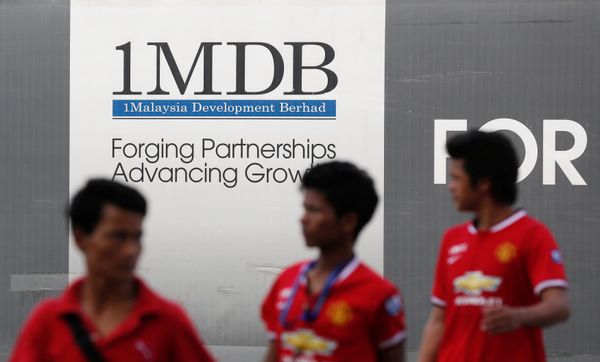By Sofia Nasir
SHAH ALAM, July 20 — The infamous 1Malaysia Development Bhd (1MDB) scandal not only reshaped the country’s legal landscape but also propelled the media industry towards greater democracy and progressiveness.
However, these changes did not come easily. Under the previous administration, media practitioners were tightly controlled, with some even used as political tools.
This was what prompted a group of journalists to form the Gerakan Media Merdeka (Geramm), formerly known as Gerakan Media Marah, as a platform to oppose the government’s "gag order" policy, particularly on issues related to 1MDB.
Its director Radzi Razak revealed that media practitioners then found it difficult to gain cooperation from government leaders and agencies when attempting to write news reports on the mega scandal.
"We started speaking out (by forming Geramm) because at the time, we received numerous complaints from journalists across mainstream media, alternative outlets, and international agencies, who revealed that there were restrictions on reporting the news,” he told Media Selangor.
Radzi said Geramm had to organise a series of peaceful assemblies and protests to demand media freedom and show solidarity with media agencies that had their publishing permits suspended for reporting on the 1MDB case.
Over time, he said the media industry became more open, particularly through changes in national leadership and the recent establishment of the Malaysian Media Council (MMC) in June.
“If we compare the situation with 2015, the difference is clear. Things are looking more positive now, but that doesn’t mean we should stop working towards greater change,” he said.
[caption id="attachment_408420" align="alignnone" width="866"] Journalist Radzi Razak speaks to Media Selangor at its office in Shah Alam, on July 16, 2025. — Picture by NUR ADIBAH AHMAD IZAM/MEDIASELANGOR[/caption]
Journalist Radzi Razak speaks to Media Selangor at its office in Shah Alam, on July 16, 2025. — Picture by NUR ADIBAH AHMAD IZAM/MEDIASELANGOR[/caption]
Radzi, who has been in the media industry for close to 20 years, is among 12 media practitioners appointed as MMC's founding board members.
According to him, the establishment of an independent regulatory body to uphold journalistic integrity and safeguard the welfare of media practitioners had been proposed since the 1970s, but was only realised on June 14 through the Malaysian Media Council Act 2024.
“All this while, we’ve had no independent body to safeguard the welfare, integrity, and interests of the media industry. Other professions like doctors and lawyers have their own bodies, such as the Malaysian Bar Council, but the media had none.
"Media practitioners simply followed company directives and orders from the top. The danger in that is the potential for manipulation, and we’ve seen how some cases were simply swept under the rug,” he said.
Universiti Teknologi Mara (UiTM) Centre for Media and Information Warfare Studies senior lecturer Noor Nirwandy Mat Noordin said the media industry has recently undergone significant and positive changes.
He cited the latest World Press Freedom Index released on May 3, which showed Malaysia climbing 19 spots to 88th place, compared to 107th last year, as a testament to this.
“We’ve also seen several reforms, such as improvements to the Communications and Multimedia Act 1998 and the introduction of social media licensing. These are forward steps by the government to safeguard media integrity,” he said.
He expressed hope that the establishment of the MMC will safeguard the future of the media industry, particularly in the era of digitalisation, artificial intelligence (AI), and citizen journalism.
Nirwandy also proposed introducing a new law under the MMC to compel social media platforms to compensate media agencies for their content, as practiced in several developed countries, in order to support the financial sustainability of news organisations.
“Otherwise, we may see a future where the media is dominated by foreign agencies with stronger financial resources, potentially promoting a style of reporting that contradicts the philosophy of development and national identity.
“This is the concern. Even if it seems unlikely, we must remember that the economic cycle and the media’s dependence on financial sustainability are realities we must acknowledge,” he said.


